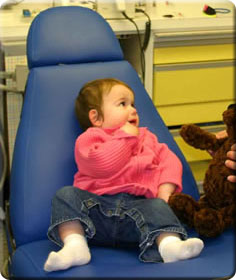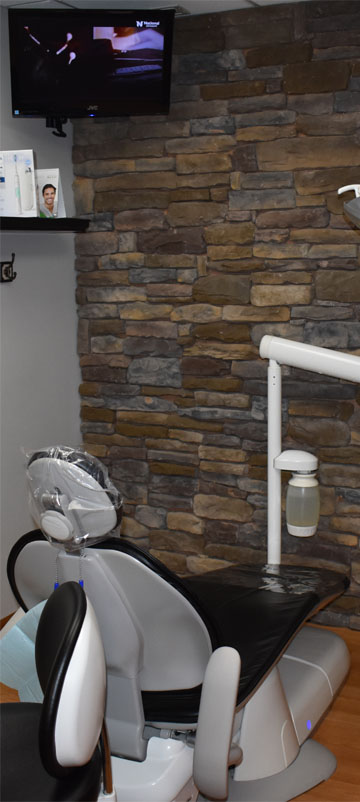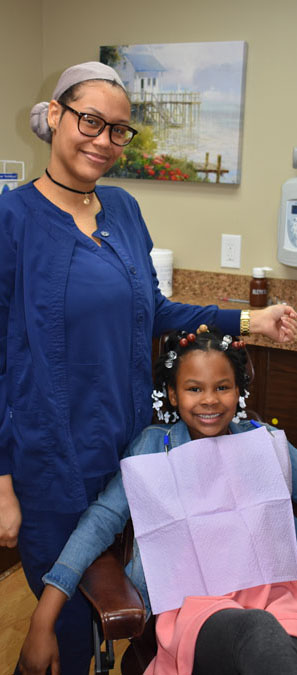 For new parents, every day brings new milestones: the first smile, the first words, the first steps. Mixed in there somewhere you are probably photographing your child with a new first: the first tooth. After you snap that photograph, go to the telephone and schedule your child’s first dental visit. The American Academy of Pediatrics recommends that you take your child to the dentist when the first tooth appears. Just as you take your child to the pediatrician for illnesses and well visits, you should take your child to the dentist for regular check-ups as well as when there are problems.
For new parents, every day brings new milestones: the first smile, the first words, the first steps. Mixed in there somewhere you are probably photographing your child with a new first: the first tooth. After you snap that photograph, go to the telephone and schedule your child’s first dental visit. The American Academy of Pediatrics recommends that you take your child to the dentist when the first tooth appears. Just as you take your child to the pediatrician for illnesses and well visits, you should take your child to the dentist for regular check-ups as well as when there are problems.
According to a report from the Centers for Disease Control and Prevention, cavities in baby teeth of children ages 2 to 5 have increased 28% in 1999-2004. This is startling news to many parents of toddlers. These early issues can lead to lifelong dental problems if not addressed appropriately. Population studies have shown that children who have cavities in their baby teeth are more likely to have cavities in their adult teeth. Furthermore, premature loss of baby teeth will more likely create crowding problems for adult teeth.
Choosing a dentist
When you choose a dentist for your child, it is important to choose one who has experience in caring for children. A dentist who does not frequently work with children will probably be at a slight disadvantage. Interacting with children and making them comfortable during their appointment takes patience and practice. A dentist who cares for children on a regular basis is going to be much more knowledgeable with these techniques.
The first visit
When you schedule your child’s first dental visit, make sure the office staff is aware of the child’s age and the fact that this will be a first visit. Remember that even if your child is very young, you can give a very basic explanation of the upcoming visit. You can check out a library book about first dental visits, look for an educational video about going to the dentist, or just sit down and explain the process. Older siblings can be tremendously helpful; they can demonstrate what it means to open the mouth wide so the dentist can look at the teeth and offer reassurance about the first visit.
When you go to the appointment, try not to be nervous. If you are anxious or apprehensive on your child’s behalf, your child will pick up on it. Talk to the dentist prior to the appointment about making the first appointment an easy one. That is, the child’s introduction to the dentist should not involve any painful procedures; it should simply be an opportunity for the dentist to look at the teeth and for the child to get a sense of what it means to go to the dentist. While you are there, be sure to ask any questions you have about your child’s oral health.
With regular appointments, proper dental care, and clear lines of communication, you and your child’s dentist can work together to ensure that your child’s teeth are strong and healthy. When your child is old enough to begin taking more responsibility for oral care, your child should be part of these conversations. At that time, the dentist can offer your child excellent advice about proper techniques for brushing and flossing, as well as limiting sweets.
Family dental
One of the best ways to make your child comfortable at the dentist is to let him or her see you (as well as any siblings) visiting the dentist. Dr. Michael Moore provides dental care for the whole family; this means that you do not have to find another dentist to care for your child. Dr. Moore can care for you and your children; that will make dental visits easier and more comfortable for the whole family.
As always, we invite you to share your thoughts and experiences on making the first dental appointment for a child.



